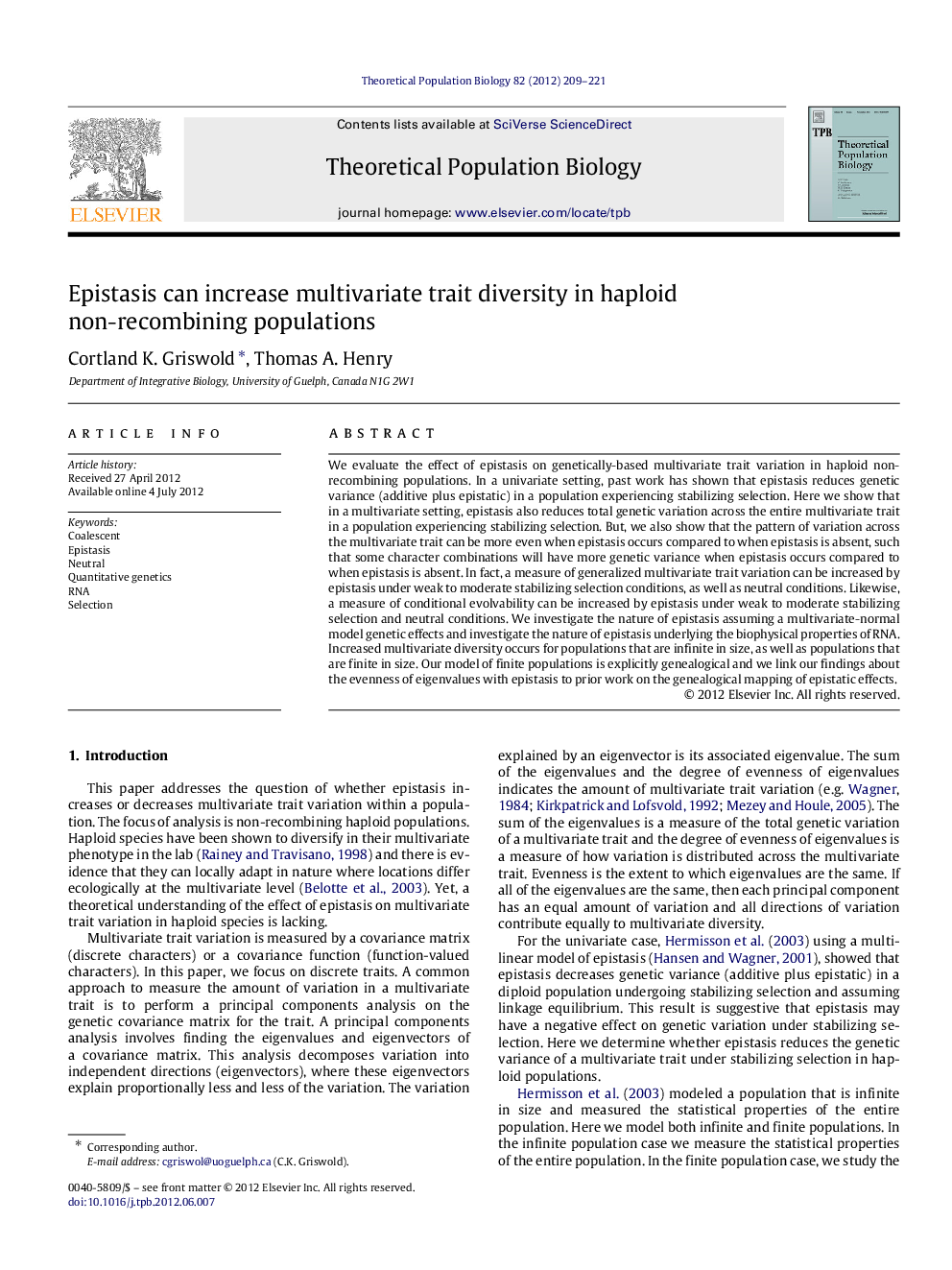| Article ID | Journal | Published Year | Pages | File Type |
|---|---|---|---|---|
| 6372418 | Theoretical Population Biology | 2012 | 13 Pages |
Abstract
We evaluate the effect of epistasis on genetically-based multivariate trait variation in haploid non-recombining populations. In a univariate setting, past work has shown that epistasis reduces genetic variance (additive plus epistatic) in a population experiencing stabilizing selection. Here we show that in a multivariate setting, epistasis also reduces total genetic variation across the entire multivariate trait in a population experiencing stabilizing selection. But, we also show that the pattern of variation across the multivariate trait can be more even when epistasis occurs compared to when epistasis is absent, such that some character combinations will have more genetic variance when epistasis occurs compared to when epistasis is absent. In fact, a measure of generalized multivariate trait variation can be increased by epistasis under weak to moderate stabilizing selection conditions, as well as neutral conditions. Likewise, a measure of conditional evolvability can be increased by epistasis under weak to moderate stabilizing selection and neutral conditions. We investigate the nature of epistasis assuming a multivariate-normal model genetic effects and investigate the nature of epistasis underlying the biophysical properties of RNA. Increased multivariate diversity occurs for populations that are infinite in size, as well as populations that are finite in size. Our model of finite populations is explicitly genealogical and we link our findings about the evenness of eigenvalues with epistasis to prior work on the genealogical mapping of epistatic effects.
Related Topics
Life Sciences
Agricultural and Biological Sciences
Agricultural and Biological Sciences (General)
Authors
Cortland K. Griswold, Thomas A. Henry,
